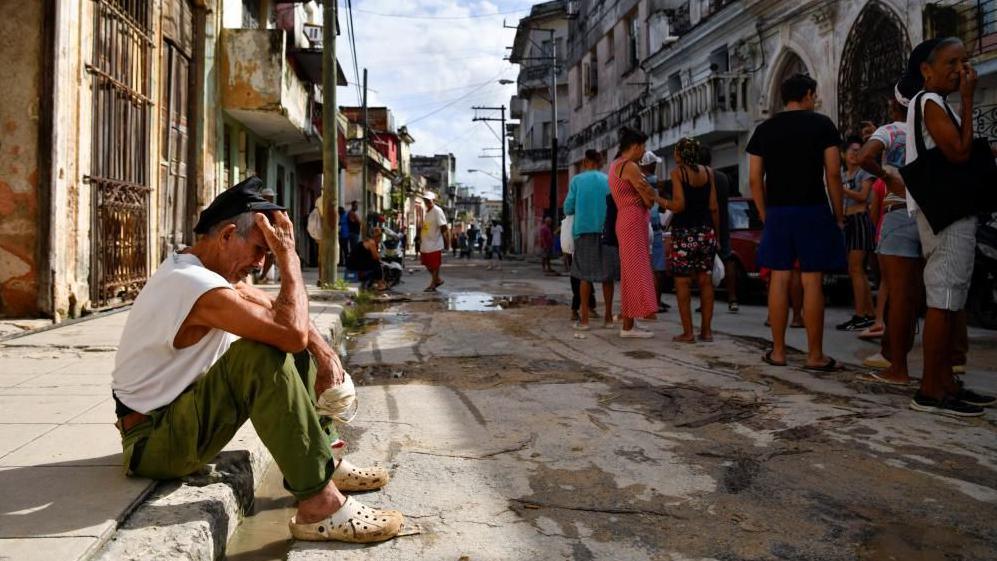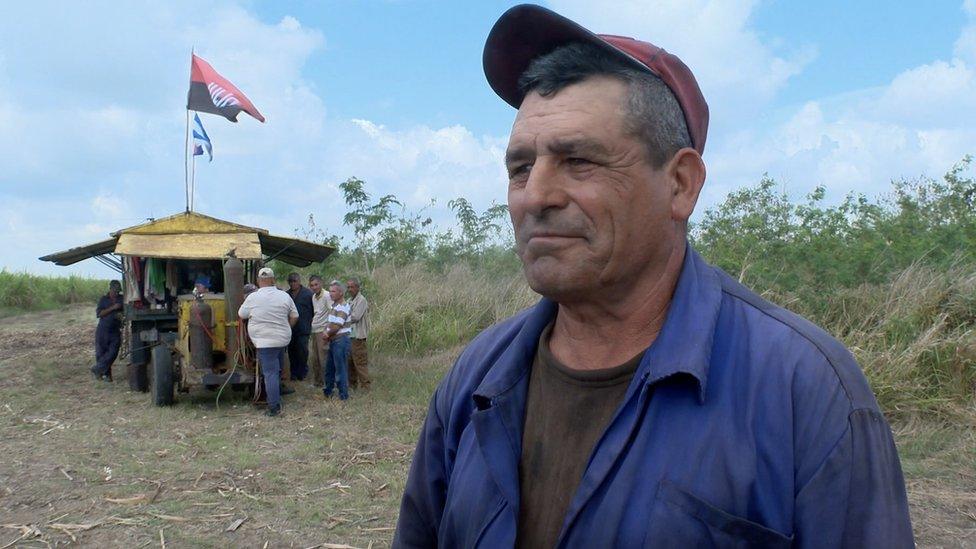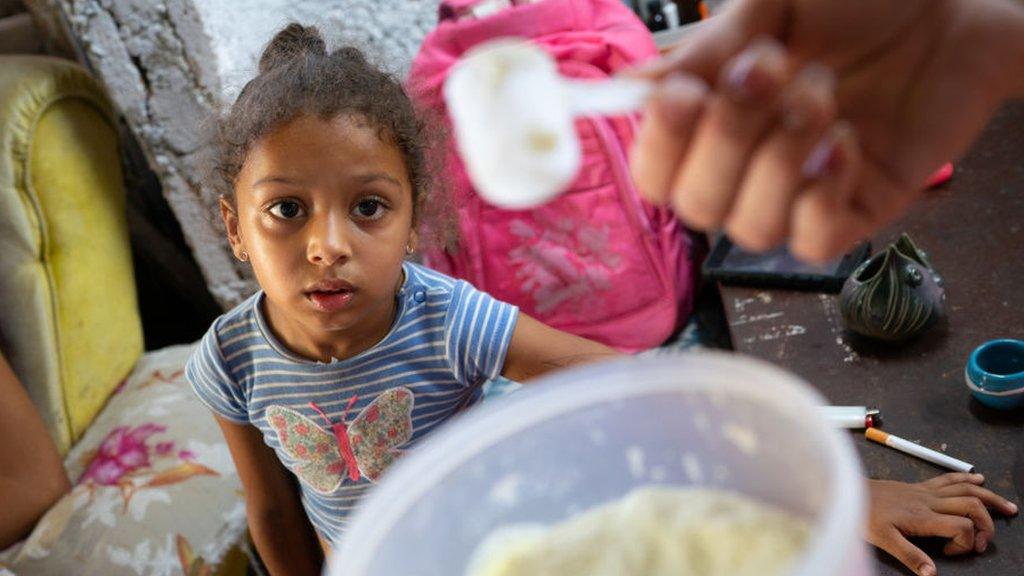Hurricane Oscar leaves at least six dead in Cuba

The hurricane hit as Cuba was experiencing a nationwide power cut
- Published
At least six people have died as a result of Hurricane Oscar in Cuba, the country's president, Miguel Díaz-Canel, has confirmed.
Oscar made landfall as a category one hurricane near the city of Baracoa in eastern Cuba on Sunday afternoon local time before weakening to a tropical storm.
The province of Guantánamo was the worst hit, with more than 1,000 homes damaged by heavy rains and strong winds.
The hurricane made landfall during an island-wide power cut which left around 10 million Cubans in the dark.
President Díaz-Canel said that, as of the early hours of Tuesday, there were still areas which remained inaccessible following Oscar's passing.
He added that rescue workers were doing their best to reach those cut off.
The president said that "the municipalities of San Antonio and Imías have been heavily battered by this event and there have even been levels of flooding that were not historically recorded in these two areas".
The six fatalities were all recorded in San Antonio, but so far no details have been given as to how they died.
Meteorologists have warned that Oscar could cause localised flash flooding across south-eastern Bahamas and the Turks and Caicos Islands on Tuesday as it moves north-eastward.
Some Cubans living in areas where power has still not been restored have taken to the streets in a rare show of open dissent in a country where unauthorised protests are banned and can land protesters in jail.
Banging pots and pans, they chanted: "Turn on the lights."
While power cuts are not unusual in Cuba, the failure of its biggest power plant last week triggered a chain reaction which saw the nation plunged into darkness.
President Díaz-Canel blamed the situation on a tightening of the decades-long US trade embargo.
He also said that the Cuban state would not rest until power was restored.
But on Monday night those living in neighbourhoods still without power said they were fed up.
"We have been without electricity since Friday," one man told the Reuters news agency.
"My 85-year-old grandmother has been asking me for cold water since Friday," he added.
A woman told Reuters she had been without power for four days.
"The food has spoiled, the children are struggling, we have no cold water, we have nothing," she said.
Cubans have been struggling not just with the power cuts, but also with shortages of fuel and food as the Communist-run island experiences its worst economic crisis in three decades.
Related topics
- Published25 September 2024

- Published18 May 2024

- Published29 February 2024
